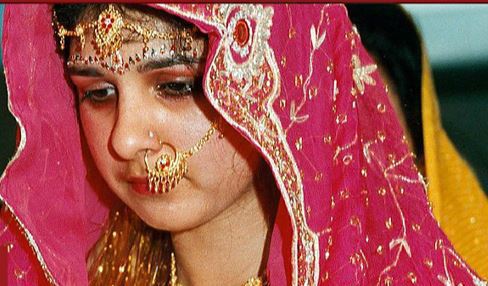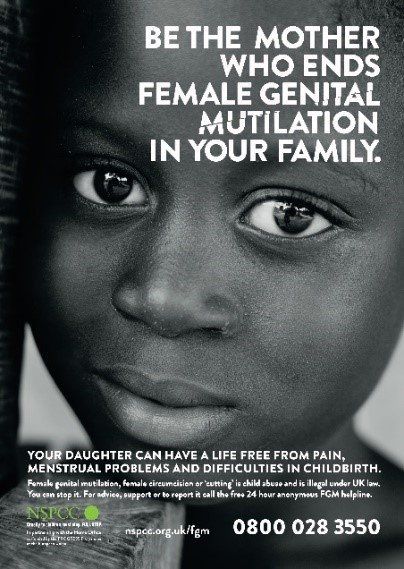Training and awareness
Training & Awareness
We offer training on how to support victims of Honour Based Violence (HBV), Forced Marriage (FM), and Female Genital Mutilation (FGM).
Our commitment is to provide training and raise awareness to Police Forces, Colleges, Universities, Schools, Local Authorities, GP Surgeries, and Partner Agencies. We will help victims to ‘break their silence’ , seek help and get justice.
We aim to reach out to wider communities to allow them to have a better understanding of the society we live in today, promote education
for women and empower women’s self-help groups. Deliver support services to schools and understanding for young people who are forced into making decisions against their will, who feel trapped and isolated within their own homes.
Aims
Aims
Public Authorities
Our aim is to provide training to address the lack of awareness within local authorities and private sector organisations, who are in a position to identify and support potential victims facing honour abuse within their safeguarding procedures.
This will also include forced marriage and FGM (female genital mutilation.) We also offer one-to-one victim support and consultancy. We are endorsed by the Home Office and Foreign and Commonwealth Office.
We work with victim support and police forces across the country and are currently working closely with Surrey Police and the Crime Commissioner.
Conferences
We also attend conferences and share life experiences to give a real impact on the matter so that professionals can learn how to best support the related victims, help police officers to have an understanding of this cultural issue, and how best to tackle and investigate their cases.
- Wandsworth Conference (download agenda)
- Victim Support Conference (download agenda)
- Freedom Charity & Norfolk Constabulary
- April 2004 WOMEN OF POWER CONFERENCE– Storm Empowerment
Schools
Our aim is to work with schools, colleges, and universities to ensure that staff and students have the best support.
Children often consider school as a place of safety where they can speak to someone about their concerns. This is why it is so important to make sure that teachers fully understand issues such as honour based violence, forced marriage, and female genital mutilation.
Teachers will then be in the best position to offer safe advice to their students and protect them from harm.
Young People
Empower
We also aim to offer confidence classes to those that want to learn a second language, thus enabling them to be more independent in daily activities.
We wish to help them engage with the society we live in and expand their knowledge, supporting them to lead a better life without isolation and fear. Helping victims identify options and choices and support their decisions in what they wish to do lies at the core of our efforts.
Education classes will also be offered to help them have a better understanding of general health notions, as well as of any other concerns they may have. Counselling in groups or one-to-one is also available.
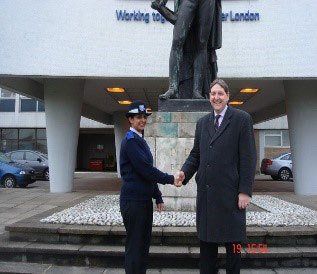
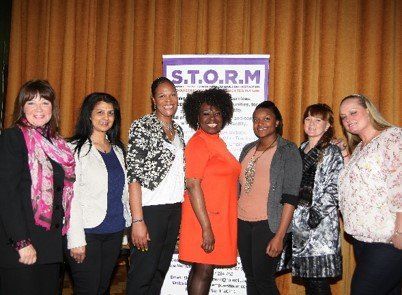
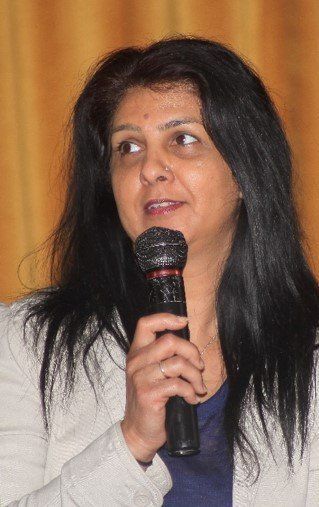
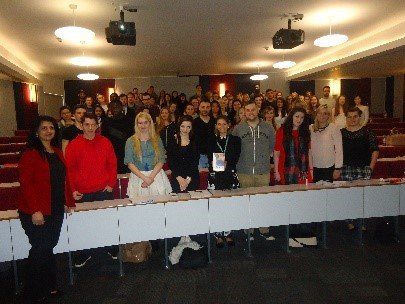
Honour Based Violence
Honour based violence (HBV) can be described as a collection of practices which are used to control behaviour within families or other social groups, to protect perceived cultural and religious beliefs, and/or honour. Such violence can occur when perpetrators perceive that a relative has shamed the family and/or community by breaking their honour code.
‘Honour based violence' is a crime or incident which has or may have been committed to protect or defend the honour of the family and/or community. Our aim is to help all officers’ , particularly frontline officers, to understand Honour Based Violence (HBV), cultural issues/differences, and ‘Shame’ and ‘Honour’.
To help police officers understand the impact it can have on a victim if they are turned away officers must remember the ‘ONE CHANCE RULE’ and the difficulties they will face when dealing with families, and how easy it can be to be misled by perpetrators. We take officers through experiences of survivors for them to fully understand the long lasting impact it can have on victims. To understand the barriers and why victims may be afraid to seek help and talk to the police.
Forced Marriage (click for more details)
A Forced Marriage (FM) is a marriage conducted without the valid consent of one or both parties and where duress is a factor. FM is now a specific offence under s121 of the Anti-Social Behaviour Crime and Policing Act 2014, and came into force on 16 June 2014. Prior to the introduction of the new offence, prosecutors have dealt with FM cases using existing legislation such as false imprisonment, kidnapping and offences of violence where this is a feature of the offending.
A Forced Marriage Protection Order (FMPO) is a civil remedy issued under the FM (Civil Protection) Act 2007. It offers protection to a victim from all civil or religious ceremonies by forbidding the respondent(s) themselves, or by encouraging or agreeing with any person whatsoever, from entering into any agreements in relation to the engagement or matrimony.
A FMPO may contain such prohibitions, restrictions, or requirements and any other such terms as the court considers appropriate for the purposes of the order. An application for a FMPO can be made by a victim, a person obtaining the court's permission to apply for an order on behalf of the victim, a relevant third party, or by the court of its own volition.
Breach of a FMPO is now a criminal offence under s120 of the Anti-Social Behaviour, Crime and Policing Act 2014 which came into force on 16 June 2014.
Prosecutors should note that a breach of an FMPO can be referred to the CPS by the police if a victim reports it in the first instance. A breach of an FMPO should be treated in the same way as a prosecution of any other breach of an order for example, a breach of a non-molestation order.
Examples of a number of key motives for those who commit honour based violence and forced marriage that have been identified by the multi-agency practice guidelines handling cases of Forced Marriage (June 2009):
- controlling unwanted behaviour, for example, alcohol and drug use, wearing make-up or behaving in what is perceived to be a "westernised manner";
- preventing "unsuitable" relationships, e.g. outside ethnic/cultural/religious/caste group;
- protecting "family honour" or "izzat";
- responding to peer group or family pressure;
- attempting to strengthen family links;
- achieving financial gain;
- ensuring land, property and wealth remain within the family;
- protecting perceived cultural ideals;
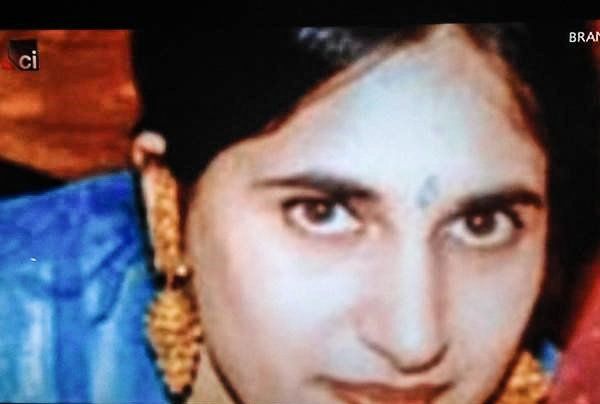
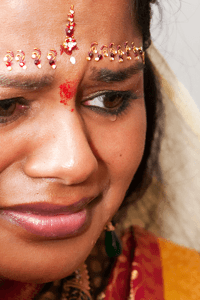
The Forced Marriage Unit (FMU) is a joint Foreign & Commonwealth Office and Home Office Unit. The Unit also works in partnership with community organisations and voluntary organisations to tackle forced marriage. The FMU has a public helpline that provides confidential advice and support to victims, and to practitioners handling cases of forced marriage.
The FMU welcomes enquiries from frontline practitioners handling cases of forced marriage at any stage in a case. It can offer information and advice on the range of tools available to combat forced marriage, including: legal remedies, overseas assistance, and how to approach victims. Prosecutors are encouraged to contact the FMU as their expertise in such cases can assist us with our cases.
To contact the FMU go to: https://www.gov.uk/stop-forced-marriage
Female Genital Mutilation
Female Genital Mutilation (FGM) is a collective term for a range of procedures which involve partial or total removal of the external female genitalia for non-medical reasons. It is sometimes referred to as female circumcision, or female genital cutting. The names FGM or ‘cut’ are increasingly used within the community, but they are still not always understood by individuals in practicing communities, largely because they are English terms. Other terms for FGM include the Somali 'Gudnin' and the Sudanese 'Tahur'.
A person is guilty of an offence of FGM if he excises, infibulates or otherwise mutilates the whole or any part of a girl's labia majora, labia minora or clitoris. "Excise" and "Infibulation" refer to "the removal" (by cutting) of the clitoris and partial or total removal of the labia minors and stitching of the labia majora.
Many adult victims of FGM require deinfibulation by medical professionals in order to deliver a child. Sometimes reinfibulation occurs at some stage between the time the woman gives birth and returns to give birth to another child. Reinfibulation is the re-suturing of the woman (stitching). FGM of girls is to be considered as child abuse.
The Act was brought into force on 3 March 2004 by the Female Genital Mutilation Act 2003 (Commencement) Order 2004. The provisions of the Act only apply to offences committed on or after the date of commencement. For offences committed before 3 March 2004 the Prohibition of Female Circumcision 1985, as re-enacted in the Female Genital Mutilation Act 2003, continues to apply.
The Act affirms that it is illegal for FGM to be performed, and that it is also an offence for UK nationals or permanent UK residents to carry out, aid, abet, counsel or procure the carrying out of FGM abroad on a UK national or permanent UK resident, even in countries where the practice is legal.
A person guilty of an offence under this Act is liable:
• on conviction on indictment, to imprisonment for a term not exceeding 14 years or a fine (or both);
• on summary conviction, to imprisonment for a term not exceeding six months or a fine not exceeding the statutory maximum (or both).
Contact the 24-hour helpline at 0800 028 3550 or email fgmhelp@nspcc.org.uk
Every year, in the UK on average 20,000 – 24,000 girls are at risk of this happening to them. Average age for FGM is between 4 – 14 years of age, but can happen prior or after that age.
Risk Indicators of FGM – before it is undertaken
• Permission requested for overseas trip or talk of a long holiday
• Child is excited about a party and receiving presents, but it’s not their birthday (an elder visiting from overseas)
• Female child talking about a “procedure”. Telling a friend that they can then play with other children or she will become a women soon
• The family comes from an FGM practising background
• Girls potentially at risk if their mothers/aunts have been through the procedure
• Parents aware that there is a law against this practice, that you can go to prison or lose your children
• Other girls in the family/extended family that could be at risk
Risk Indicators of FGM – after it is undertaken
• Prolonged absences from school
View Events
• Noticeable behaviour change (after holiday)
• Difficulty sitting, walking, and even standing
• Not wanting to participate in Physical Education (PE)
• Spending longer in the toilet than normal (as the bladder empties slower due to the trickle effect)
• Spending long periods away from lessons
• Unexplained health problems:
- Severe pain
- Urinary/wound infections (tetanus/HIV/Hepatitis)
- Haemorrhages
- Psychological/Emotional problems including, hock/flash backs
- Difficulties with menstruation
• Not wanting to undergo a medical examination/embarrassed or fearful
• Other girls in the family/extended family that could be at risk
